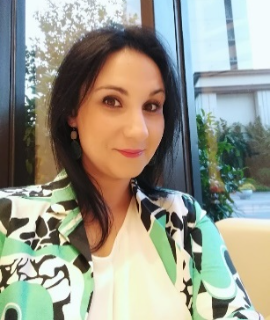Title : Anti HSV 1 Activity of natural raw and roasted unsalted pistachio kernels in human monocytic THP 1 and Vero cells.
Abstract:
In recent years, a great interest has been devoted to the search for alternative clinical treatment for HSV infections.
To date, acyclovir and related nucleoside analogues are effective viral DNA polymerase inhibitors but their intensive use has led to the expansion of drug-resistant strains. Therefore, the search for novel sources to develop new antiherpetic agents have gained major priority to overcome the problem. Plants are a rich source of new antiviral, pharmacologically active agents which provide several advantages such as reduced side effects, less resistance, low toxicity and various mechanisms of action. Therefore, the purpose of the current study was to investigate the effects of natural raw (NRRE) and roasted unsalted (RURE) pistachio polyphenols-rich extracts in both human monocytic cells THP-1 and epithelial VERO cells on HSV-1 replication. Pistachio polyphenolic extracts were prepared following two different extraction methods, with or without n-hexane. The identification and quantification of phenolic compounds by RP-HPLC-DAD reported that the NRRE extracts are generally richer in polyphenolic compounds compared with RURE extracts. Besides, the cell viability was measured by monitoring over time the metabolic activity of cells following NRRE and RURE dose-dependent (0.2, 0.4, 0.8 mg/mL) treatment. A better profile of cellular tolerability was reported for the NRRE and RURE extracts obtained without using n-hexane in both cell lines. Moreover, non-toxic concentrations of NRRE and/or RURE (0.6, 0.4 and 0.3 mg/mL) were employed to verify the antiviral effect by plaque reduction assay. Cells and virus dilutions were pre-treated with both extracts for 1h and mixed to allow viral adsorption. After 1 hour, any unabsorbed virus was aspirated and the monolayer covered with Dulbecco’s Modified Eagle’s Medium containing 0.8% methylcellulose in presence of both extracts, separately. We found that in Vero cells, NRRE and RURE exhibited a significant inhibitory activity at 0.6 mg/mL and in particular, the treatment with the mixture extracted with n-hexane determined a significant reduction of plaque numbers and size, as reported by change of morphology and by detection of microplaques. Based on this, NRRE and RURE n-hexane were used to treat cells and virus suspension and detect the viral DNA and genes. We report that NRRE significantly reduced viral DNA and genes, at 0.4 and 0.6 mg/mL and viral protein expression only at higher concentration. Otherwise, RURE affected not strongly the viral DNA but partially reduced viral transcripts and protein at 0.6 mg/mL. Besides, we measured the intracellular virus production in THP-1 cells pre-treated with NRRE and RURE n-hexane and infected with HSV-1 by plaque assay and showed a strong reduction at both concentrations which matches with the viral DNA reduction following treatment. These data report that human monocytic THP-1 cells treated with NRRE and RURE are less susceptible to HSV-1 infection, suggesting their potential use as antiherpetic agents.
What will audience learn from your presentation?
- There is no cure for HSV-1 infections, but antiviral drugs are commonly used to prevent and treat outbreaks. Antiviral resistance has begun to emerge, giving importance to the search for new and effective therapies for the prophylaxis and treatment of HSV outbreaks.
- The antiviral activity of polyphenol-rich extracts of pistachios may be useful for the formulation of adjuvant drug in anti-herpetic infection and against acyclovir-resistant HSV-1 strains.
- Biological properties of HSV are neuroinvasiveness, neurotoxicity, and latency. Therefore, the antiviral effect of pistachio kernels was investigated in human monocytic cells which interact with herpes simplex virus (HSV) and are of importance for the pathogenesis of HSV infections.


